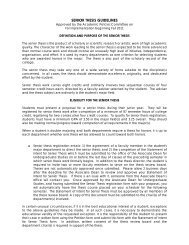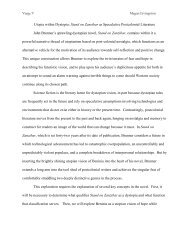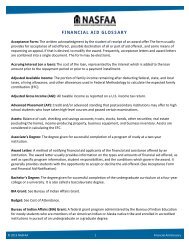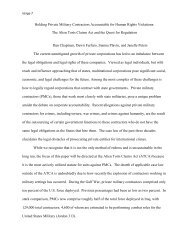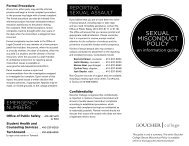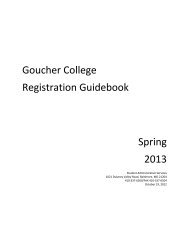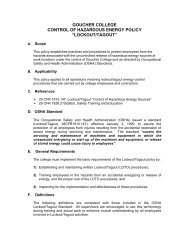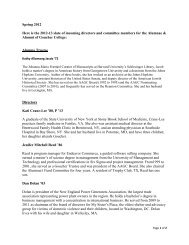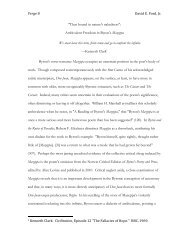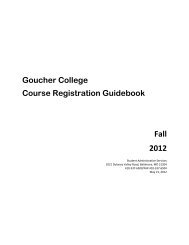Abraham Lincoln and the Northern Anti-War Press
Abraham Lincoln and the Northern Anti-War Press
Abraham Lincoln and the Northern Anti-War Press
Create successful ePaper yourself
Turn your PDF publications into a flip-book with our unique Google optimized e-Paper software.
Verge 6 Wer<strong>the</strong>imer 5<br />
„gratified to announce‟ <strong>the</strong> death of <strong>the</strong> paper. The New York Times added that Ben Wood should<br />
be thankful he could „walk <strong>the</strong> streets with as much impunity as if he were a true man‟” (Sprague<br />
146). These reactions were commonplace after <strong>the</strong> downfall of a paper. Sprague notes that “even<br />
<strong>the</strong> country‟s leading editors refused to rise in defense of <strong>the</strong>ir stricken comrades” (Sprague 153).<br />
Daybook was <strong>the</strong> third NY paper targeted by <strong>the</strong> federal government. The paper‟s<br />
ownership offered to cease any discussion in its pages of <strong>the</strong> merits of <strong>the</strong> war, <strong>and</strong> devote itself<br />
entirely to discussing <strong>the</strong> issue of slavery in America, renaming itself <strong>the</strong> Weekly Caucasian. The<br />
government‟s response to this proposal is noteworthy. “Since <strong>the</strong> war in 1861 was not being<br />
fought on <strong>the</strong> question of slavery but to preserve <strong>the</strong> Union, <strong>the</strong> request was approved” (Sprague<br />
146-147). And so <strong>the</strong> Daybook transformed itself to regain its ability to circulate.<br />
Though many publishers capitulated to <strong>the</strong> government‟s dem<strong>and</strong>s without much fuss, a<br />
select few were more stubborn. James McMasters, editor <strong>and</strong> publisher of <strong>the</strong> Freeman’s<br />
Journal, countered <strong>the</strong> government‟s ban of his paper from <strong>the</strong> mail by downsizing <strong>the</strong><br />
publication to reduce <strong>the</strong> cost of running it. Ultimately, a copy of <strong>the</strong> paper was sent to William<br />
Seward, Secretary of State at <strong>the</strong> time <strong>and</strong> former Governor of New York. His response was<br />
swift <strong>and</strong> curt: “You will arrest <strong>and</strong> send [McMasters] to Fort Lafayette” (Sprague 147-148).<br />
McMasters was arrested without a warrant <strong>and</strong> remained in prison for over a month.<br />
James McMasters was but one of many citizens arrested in 1861 without due process of<br />
law. Earlier in <strong>the</strong> year on April 19 th , riots erupted in <strong>the</strong> city of Baltimore. The outburst was<br />
sparked by <strong>the</strong> passage of a regiment of Nor<strong>the</strong>rn soldiers through <strong>the</strong> city. When <strong>the</strong> news of <strong>the</strong><br />
riots reached Washington, <strong>the</strong> administration became nervous that it would lose control of a city<br />
with such strategic importance. If <strong>the</strong> Confederates were to take over <strong>the</strong> city, <strong>the</strong>y could cut off



